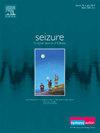阐明不同生酮饮食对癫痫患者的安全性、耐受性和有效性:一项范围荟萃综述。
IF 2.7
3区 医学
Q2 CLINICAL NEUROLOGY
引用次数: 0
摘要
背景:饮食疗法治疗癫痫,包括生酮饮食(KDs),已被用于儿童和成人人群的治疗。最近的研究集中在各种饮食疗法治疗癫痫的安全性、有效性和耐受性上。本荟萃综述的目的是评价不同生酮饮食治疗癫痫的证据。方法:本研究遵循Arksey和O'Malley框架,并遵循系统评价首选报告项目和范围评价元分析扩展(PRISMA-ScR)报告标准。研究问题是使用人口,概念,背景(PCC)框架制定的。在PubMed, Scopus和Web of Science上进行了全面的文献检索,截止到2024年8月14日。结果:在鉴定的152篇论文中,包括38篇系统综述和荟萃分析。该综述检查了饮食疗法治疗癫痫的安全性、耐受性和有效性,特别是在耐药病例中。研究结果强调了经典生酮饮食(CKD)在减少癫痫发作频率方面的显著益处。改良阿特金斯饮食(MAD)和中链甘油三酯(MCT) KD被发现是有效的,耐受性提高。低血糖指数饮食(LGID)可能效果较差。需要进一步的研究来完善这些饮食方法。结论:KDs能有效降低癫痫患者的发作频率,尤其是耐药患者。结果强调了CKD在减少癫痫发作频率方面的宝贵优势。MCT KD和MAD也是有效的选择,通常耐受性更好。LGID显示出潜力,但可能效果较差。需要进一步的研究来加强这些饮食治疗并调查其长期影响。本文章由计算机程序翻译,如有差异,请以英文原文为准。
Illuminating the Safety, Tolerability, and Efficacy of Different Ketogenic Diets for Individuals with Epilepsy: A Scoping Meta-Review
Background
Diet therapies for epilepsy, including the ketogenic diets (KDs), have been used as a treatment for both pediatric and adult populations. Recent studies have focused on the safety, efficacy, and tolerability of various diet therapies for epilepsy. The objective of this scoping meta- review was to evaluate the evidence regarding different ketogenic diets for epilepsy.
Methods
This study followed the Arksey and O'Malley framework and adhered to the Preferred Reporting Items for Systematic Reviews and Meta-analysis extension for scoping reviews (PRISMA-ScR) reporting standards. The research question was formulated using the Population, Concept, Context (PCC) framework. A comprehensive literature search was conducted across PubMed, Scopus, and Web of Science up to August 14, 2024.
Results
Out of the 152 papers identified, 38 systematic reviews and meta-analyses were included. The review examined the safety, tolerability, and efficacy of diet therapies for epilepsy, particularly in drug-resistant cases. The findings underscore the significant benefits of classic ketogenic diet (CKD) in reducing seizure frequency. The Modified Atkins Diet (MAD) and Medium-Chain Triglyceride (MCT) KD were found to be effective with improved tolerability. The Low Glycemic Index Diet (LGID) may be less effective. Further research is needed to refine these dietary approaches.
Conclusion
The KDs are effective in reducing seizure frequency in epilepsy, especially in drug-resistant cases. The results highlight the valuable advantages of the CKD in decreasing the frequency of seizures. The MCT KD and the MAD are also effective options and are generally better tolerated. The LGID shows potential but may be less effective. Further research is needed to enhance these dietary treatments and investigate their long-term impact.
求助全文
通过发布文献求助,成功后即可免费获取论文全文。
去求助
来源期刊

Seizure-European Journal of Epilepsy
医学-临床神经学
CiteScore
5.60
自引率
6.70%
发文量
231
审稿时长
34 days
期刊介绍:
Seizure - European Journal of Epilepsy is an international journal owned by Epilepsy Action (the largest member led epilepsy organisation in the UK). It provides a forum for papers on all topics related to epilepsy and seizure disorders.
 求助内容:
求助内容: 应助结果提醒方式:
应助结果提醒方式:


